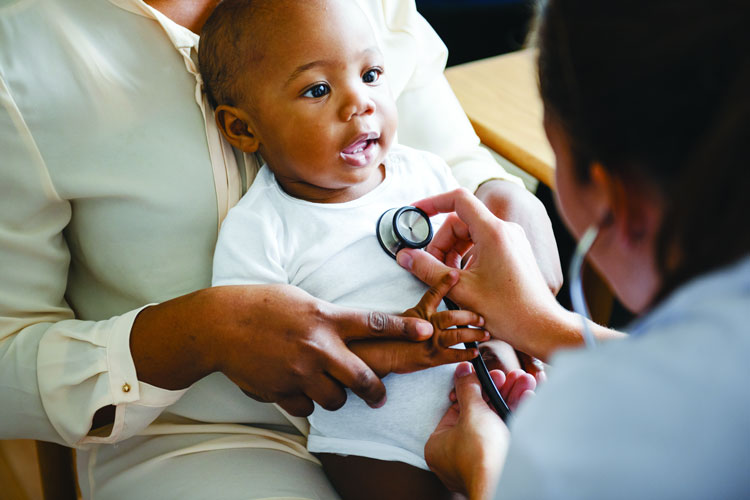
A Parent’s Guide to Reflux
- Home
- Live Well Blog
- A Parent’s Guide to Reflux
We all know babies spit up, but sometimes it’s hard to tell if it’s just normal or something more serious, like reflux.
Normal spit-up doesn’t bother babies—they just let it out. But with reflux, babies spit up a lot, often during or after feeding, and they might cry or scream.
Reflux, or GERD (gastroesophageal reflux disease) happens when stuff from the stomach comes back up into the throat. It usually starts before babies are 8 weeks old and gets better by the age of 1 year old. Sometimes babies have reflux without spitting up, which is called silent reflux.
Reflux can be caused by a few things, like a weak muscle between the throat and stomach, lactose intolerance, allergies, or other medical conditions. It’s more common in premature babies, those on high-calorie formulas, babies with lung problems, or those with nervous system issues.

If your baby has reflux symptoms, talk to their doctor or your WIC office.
Symptoms of reflux include:
Coughing
Hiccups
Noisy breathing
Congestion
Being uncomfortable during feeding
Crying
Arching
Smelly Spit-up
Trouble Sleeping
Poor Weight Gain
If your baby has these symptoms, talk to their doctor or your WIC office. They might suggest changing the formula to a sensitive one or removing dairy from your diet if you’re breastfeeding. If simple changes don’t work, you might need to see a specialist called a gastroenterologist (GI) who can prescribe medication. If your baby has trouble eating, they might need to see a feeding therapist. For older babies and toddlers with reflux, avoid acidic foods and juices.
Reflux Relief
For reflux relief, parents are often told to try warming the formula, burp the baby more often, and keep them upright after feeding for at least 20 minutes. Lying flat or moving around can make spit-up worse. Sometimes parents mistake crying or hand-chewing after spitting up as hunger, leading to overfeeding. Tummy time is important for all babies with reflux—it helps with core strength and sitting, which can improve reflux.

